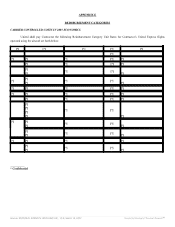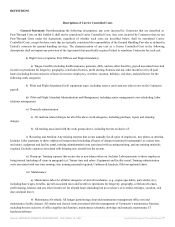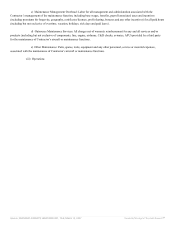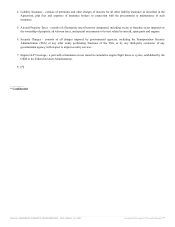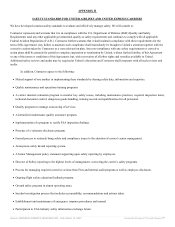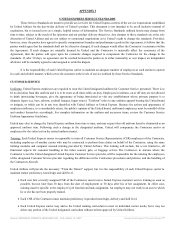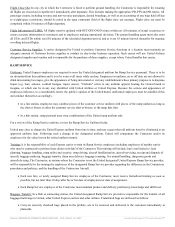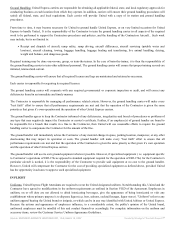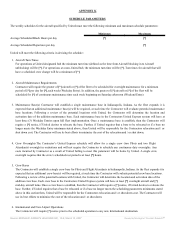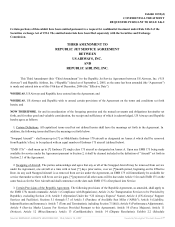Frontier Airlines 2006 Annual Report Download - page 235
Download and view the complete annual report
Please find page 235 of the 2006 Frontier Airlines annual report below. You can navigate through the pages in the report by either clicking on the pages listed below, or by using the keyword search tool below to find specific information within the annual report.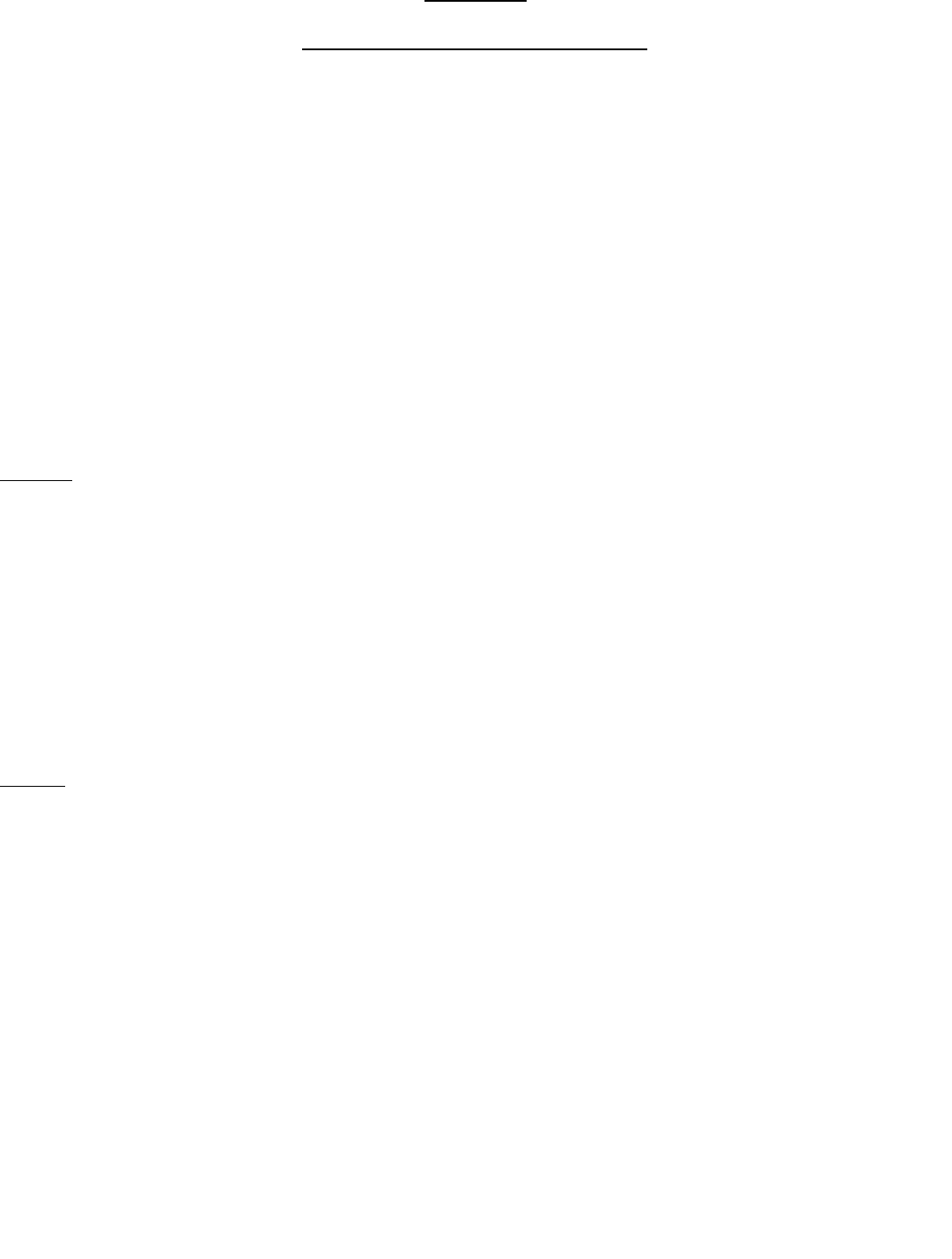
APPENDIX I
UNITED EXPRESS SERVICE STANDARDS
These Service Standards are meant to provide an overview for United Express carriers of the service expectations established
by United Airlines for the day-to-day delivery of United’s product. This document is not intended to be an all inclusive manual of
regulations, but to instead serve as a simple, helpful source of information. The Service Standards outlined herein may change from
time to time, subject to the needs of the operation and our product delivery objectives. Any changes to these standards are at the sole
discretion of United Airlines and are not subject to contractual negotiations as to United’s right to change the standards. Provided,
however, since the parties have agreed to specific compensation formulas and performance goals in this Agreement, it follows that the
parties would agree that the standards shall not be altered or changed, if such changes would affect the Contractor’s economics within
the Agreement. If such changes are mutually deemed by United and the Contractor to materially affect the economics of the
Agreement, then the parties will agree upon the economic changes required to compensate the Contractor for the change in the
standards. If, after 30 days, no agreement can be reached between the parties as to either materiality or cost impact, an independent
arbitrator will be mutually agreed to and assigned to settle the dispute.
It is the responsibility of each United Express carrier to maintain an adequate number of employees at each station to operate
in a safe and reliable manner, which serves the customer at the levels of service outlined by these Service Standards.
CUSTOMER SERVICE
Uniforms: United Express employees are required to wear the United designated uniform for Customer Service personnel. There is to
be no deviation from this uniform and it is to be worn at all times while on duty. Employees in uniform, on or off duty are not allowed
to drink intoxicating beverages, give the appearance of being intoxicated or visit any establishment whose primary purpose is to
dispense liquor (e.g. bars, saloons, cocktail lounges, liquor stores). "Uniform" refers to any uniform apparel bearing the United brand
or insignia, or which can be in any way identified with United Airlines or United Express. Because the actions and appearance of
employees influence, to a considerable extent, the public's opinion of the United brand, uniformed employees must be mindful of this
and conduct themselves accordingly. For complete information on the uniform and accessory items, review the Customer Service
Uniform Appearance Guidelines.
United may elect to change the United Express uniform from time to time, and may request that old uniform items be eliminated as an
approved uniform item. Following such a change in the designated uniform, United will compensate the Contractor and/or its
employees for the value lost on the retired uniform item(s).
Training: Each United Express carrier is responsible to train all Customer Service Representative (CSR) employees of the Contractor,
including employees of another carrier who may be contracted to perform these duties on behalf of the Contractor, using the same
training modules and computer assisted training provided by United Airlines. This training will include, but is not limited to, all
functional aspects for customer handling at the ticket counter, gate, or baggage service The Contractor, in stations where the
Contractor is not the United designated United Express Customer Service provider, will be responsible for the training the employees
of the designated Customer Service provider regarding the difference in the Contractors procedures and policies, and the handling of
the Contractors Aircraft.
United Airlines will provide the necessary “Train the Trainer” support, but it is the responsibility of each United Express carrier to
maintain trainer proficiency, knowledge and skill level.
• Each new hire or newly assigned CSR of the Contractor, must receive formal Express customer service training as soon as
possible, but not later than 30 days from the date of employment or 30 days after his or her assignment. In either case,
training must be specific to the employee’s job function and task assignment. An employee may not work in an area in which
he or she has not been properly trained.
• Each CSR of the Contractor must maintain proficiency in product knowledge, delivery and skill level.
• Each United Express carrier may add to the United training curriculum to meet its individual carrier needs, but it may not
delete any portion of the United designated curriculum without written approval by United Airlines.
Source: REPUBLIC AIRWAYS HOLDINGS INC, 10-K, March 15, 2007 Powered by Morningstar® Document Research℠


